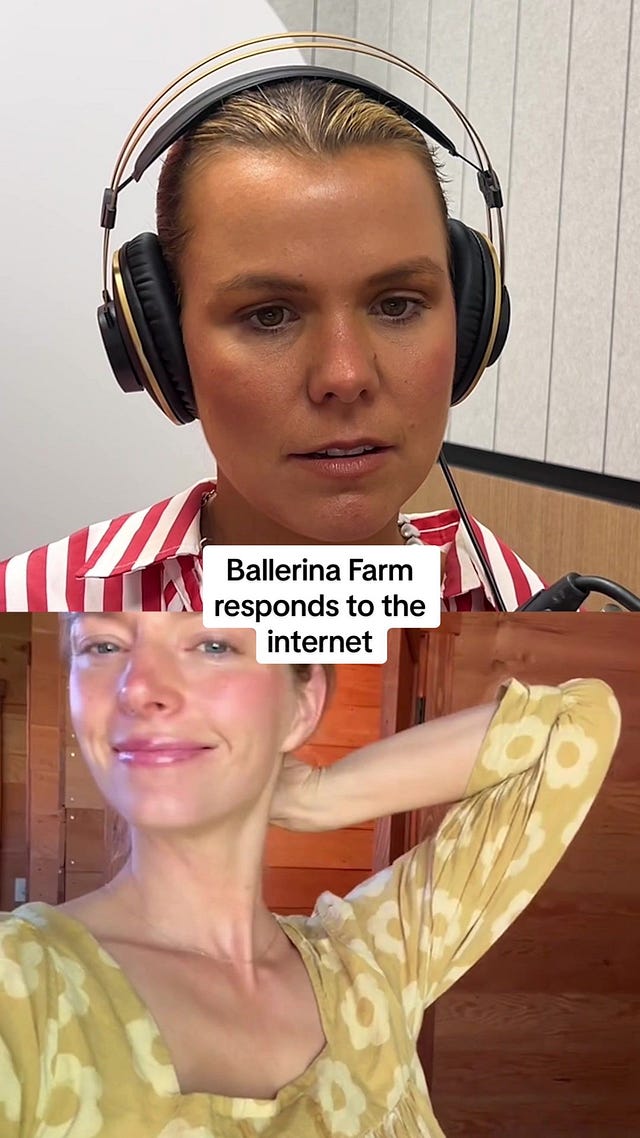In the ever-evolving landscape of social media, a peculiar phenomenon has taken root: the obsessive labelling and categorisation of women, or like the internet loves to call us: girls. What began as playful memes and seemingly harmless cultural observations has morphed into a complex system of digital taxonomy, one that not only is set to reductively define but also divide women in online spaces.
From the "manic pixie dream girl" of the 2000s to today's "that girl," the internet seems compelled to slot women into tight, digestible archetypes. "cool girl," "pick-me girl," "girl boss," "e-girl," "soft girl," "vsco girl," "plant mom," "trad wife" – the list grows by the minute, especially since we entered the TikTok era. These labels, often using the infantilising term "girl" rather than "woman" (except for when they’re married, only then do they become a woman to society’s eyes), reduce complex, ever-changing individuals to easily shareable, algorithm-friendly and totally insubstantial soundbites.
But this digital taxonomy isn't merely “illustrative”; it's divisive. Social media platforms, driven by engagement-hungry algorithms, amplify contrasts and conflicts as every passing year proves with more enforcement. "cool girls" are pitted against "pick-me girls," "girl bosses" against "trad wives," creating a virtual battleground where women are encouraged to align with one tribe and not only reject others, but make them their enemies. Online culture completely loses the ability to see any type of resemblance between the different labels, pretending like it isn’t two women fighting the same fight: find freedom within a patriarchal context.
This artificial opposition fuels online arguments and callout culture, creating a sense of "us vs. them" among women. The pressure to conform and belong to, or reject and rebel against these archetypes comes from every corner of the internet, leading to performative behaviours online and harmful and sterile conversations offline. Women find themselves navigating a minefield of expectations, where every post risks being scrutinised and categorised, threatening to explode right in front of our eyes.
Marketers and influencers, ever quick to capitalise on trends, leverage these labels for targeted campaigns, further entrenching these divisions. The result is a digital ecosystem where women's complexity is flattened and reduced, and their value is measured by their ability to fit into or rebel against predetermined moulds. At their scariest, these classification wars imply that women, in every aspect of our personalities, are in perpetual pursuit of male validation.
However, resistance is growing. Many women are rejecting these reductive labels, calling for more nuanced representations online and, most importantly, recognising each other’s agency and valid choices. Conversations emerge that aim to unite women across these artificial boundaries, fostering discussions about the shared experiences of navigating digital spaces as women.
 Tiktok failed to load.
Tiktok failed to load.Enable 3rd party cookies or use another browser
As we navigate towards a future of social media, we must challenge the impact of this labelling culture and deconstruct our own idea of what it means to be a woman. How can we create digital spaces that allow for complex, multifaceted representations of women? Moving beyond the 'Hashtag Girl Wars' feels daunting and out of reach, as it’s a collective effort that no one individual can fully influence on their own (welcome to the year 2024). Yet, it's crucial if we're to foster a more freeing, nuanced portrayal of women online.
The challenge ahead lies not just in reimagining metrics or redesigning algorithms, but in fundamentally shifting how we perceive and interact with each other online. In the end, the state of social media reflects our own societal biases and behaviours, our own constructions of reality and the world that surrounds us. By recognising and challenging these digital divides, we take a step towards a more authentic, inclusive online world – one where women are seen as individuals, not archetypes. One where we recognise our differences and decide to be empathetic of them and together fight our ways out of these patriarchal boxes.









What a good good read. Eye opening take on the insidious ways we are pitted against one another!
Incredibly insightful... what an incredible dissection of the mumbo jumbo that is the modern digital space.